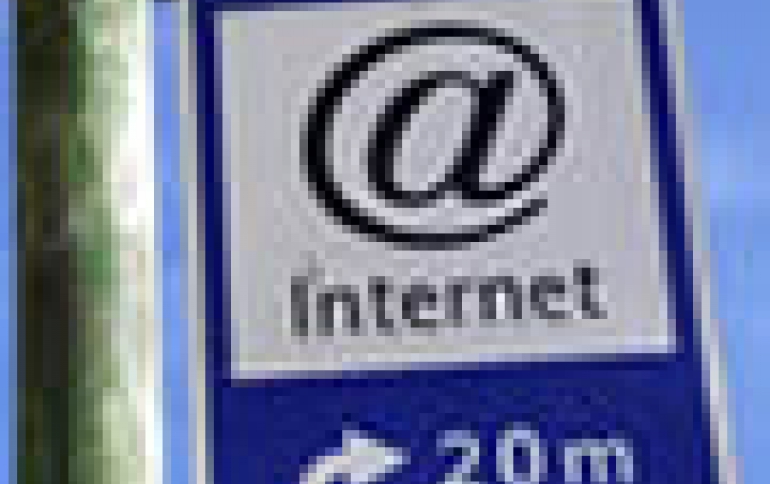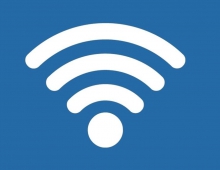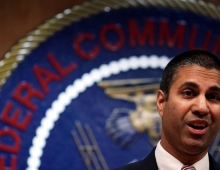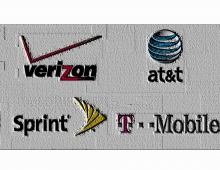
FCC To Seek Better Legal Framework For Broadband Internet Access
The Federal Communications Commission today opened a new proceeding to identify the legal approach that will best support its efforts to ensure universal access to
broadband services.
At its public business meeting today, the FCC voted to adopt the Broadband Framework Notice of Inquiry (NOI). This NOI launches an open proceeding through which the agency will seek public comment on issues related to the future of broadband in America.
The NOI seeks input on the best legal framework to apply to broadband Internet services - such as cable modem and telephone company DSL services - in order to promote competition, innovation, and investment in broadband services; to protect consumers; and to implement important aspects of the National Broadband Plan. A decision in April by the United States Court of Appeals for the District of Columbia Circuit in Comcast Corp. v. FCC raised serious questions about the Commission's ability to rely on its current legal framework - which treats broadband Internet service as solely an "information service" - when moving forward on these policy objectives.
The court ruled that the FCC had failed to show it had the authority to stop Comcast from blocking online applications that distributed television shows and other bandwidth-hogging files. To put its authority on sounder legal footing, the FCC decided it wants to regulate broadband access as a telecommunications service instead of as an information service.
Typically, that framework comes with price controls and competition mandates.
The NOI asks questions about three approaches in particular, while also inviting new ideas. First, the NOI seeks comment on how the Commission could most effectively perform its responsibilities within the current information service classification. Second, the NOI asks for comment on the legal and practical consequences of classifying Internet connectivity as a "telecommunications service" to which all the requirements of Title II of the Communications Act (the provisions that apply to telephone-type services) would apply. Finally, the NOI invites comment on a third way modeled on the successful "Regulatory Treatment of Mobile Services" set out in the Communications Act. Under this third way approach, the Commission would: (i) reaffirm that Internet information services should remain generally unregulated; (ii) identify the Internet connectivity service that is offered as part of wired broadband Internet service (and only this connectivity service) as a telecommunications service; and (iii) forbear under authority Congress provided in the Communications Act from applying all provisions of Title II other than the small number that are needed to implement fundamental universal service, competition, and consumer protection policies that have received broad support.
The NOI also seeks comment on the appropriate classification of wireless broadband Internet services, as well as on other discrete issues, including the states? role with respect to broadband Internet service. The NOI does not contemplate a change in the Commission?s treatment of, or authority over, Internet content, applications, or services.
Anyone's interested in submitting his/her ideas and comments on issues related to the Broadband Framework NOI can visit http://blog.broadband.gov/?entryId=508766.
The NOI seeks input on the best legal framework to apply to broadband Internet services - such as cable modem and telephone company DSL services - in order to promote competition, innovation, and investment in broadband services; to protect consumers; and to implement important aspects of the National Broadband Plan. A decision in April by the United States Court of Appeals for the District of Columbia Circuit in Comcast Corp. v. FCC raised serious questions about the Commission's ability to rely on its current legal framework - which treats broadband Internet service as solely an "information service" - when moving forward on these policy objectives.
The court ruled that the FCC had failed to show it had the authority to stop Comcast from blocking online applications that distributed television shows and other bandwidth-hogging files. To put its authority on sounder legal footing, the FCC decided it wants to regulate broadband access as a telecommunications service instead of as an information service.
Typically, that framework comes with price controls and competition mandates.
The NOI asks questions about three approaches in particular, while also inviting new ideas. First, the NOI seeks comment on how the Commission could most effectively perform its responsibilities within the current information service classification. Second, the NOI asks for comment on the legal and practical consequences of classifying Internet connectivity as a "telecommunications service" to which all the requirements of Title II of the Communications Act (the provisions that apply to telephone-type services) would apply. Finally, the NOI invites comment on a third way modeled on the successful "Regulatory Treatment of Mobile Services" set out in the Communications Act. Under this third way approach, the Commission would: (i) reaffirm that Internet information services should remain generally unregulated; (ii) identify the Internet connectivity service that is offered as part of wired broadband Internet service (and only this connectivity service) as a telecommunications service; and (iii) forbear under authority Congress provided in the Communications Act from applying all provisions of Title II other than the small number that are needed to implement fundamental universal service, competition, and consumer protection policies that have received broad support.
The NOI also seeks comment on the appropriate classification of wireless broadband Internet services, as well as on other discrete issues, including the states? role with respect to broadband Internet service. The NOI does not contemplate a change in the Commission?s treatment of, or authority over, Internet content, applications, or services.
Anyone's interested in submitting his/her ideas and comments on issues related to the Broadband Framework NOI can visit http://blog.broadband.gov/?entryId=508766.





















